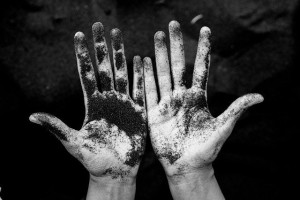
Firstly, Happy Easter season to you! In a rare conjunction, three major holidays of Judaism, Christianity, and Islam are occurring at the same time this year. So why don’t we emphasise the positive blessings of UNITY in a way which precludes just evangelism and one-way dialogue, but makes the most of both by way of sacred hospitality, offered and received: ie. processes built on a disposition of listening and attentiveness.
Secondly and furthermore, in that way we can develop our individual levels of wholeness[mfn]highly necessary, if we’re honest[/mfn] from eg. the perspective of “Contact with the devic realms as an education in the experience of wholeness. They [the devas] have taught us to be aware of everything with which we share life on this planet, not only plants but also minerals and the machinery we make from them, animals and our fellow humans. We must come to view these other inhabitants of Earth as innately divine and recognize that they deserve our acceptance and respect.” — from The Findhorn Garden Book.
Take our “soil:” on this INTERNATIONAL EARTH DAY, here’s a documentary movie tip. “Kiss the Ground” explores the core ideas behind regenerative agriculture, including: responsible management of land through reduced tilling, limits on nitrogen fertilizers, use of cover crops, and prioritization of animal and plant diversity. Activists, scientists, farmers, and politicians are starting to accept the interrelatedness of Earth’s ecology and are turning to regenerative agriculture to save the planet, local consumers and farmers at the same time. In the video, you even get to see/hear Paul Hawken !

The movie reveals that, by regenerating the world’s soils, we could completely and rapidly stabilise Earth’s climate, restore lost ecosystems and create abundant food supplies.[mfn]transpose this process metaphorically into solutions for top quality human/societal development…[/mfn] With compelling visuals along with striking NASA and NOAA footage, the film illustrates how by drawing down atmospheric carbon, soil is the missing piece of the climate puzzle to solving humanity’s greatest challenge: ie. balancing climate and our species’ future.
As a new UN report further points out, between 20 to 40% of the world’s total land area has been degraded by human activity, especially in South Asia, South America and sub-Saharan Africa. That is putting the lives and livelihoods of around half of the world’s population at risk and contributing significantly to climate change. But the report, which highlights how land restoration can help contribute to recovery and greater resilience, also stresses that we know how to stop and reverse the damage we’ve caused — not with future technology but with existing tools and know-how. And those places which have already begun investing in restoration projects are seeing the benefits. Ecological restoration is something that can address the twin crises of biodiversity and climate change, while also benefiting local human communities, providing jobs, providing food, providing clean water, clean air [and] reducing illness and disease.
The year 2021 issued a clarion call to the world: we fail to transform food systems at our peril. As the UN Secretary General said in his Statement of Action for the United Nations Food Systems Summit, “Recent reports have found that food systems are contributing up to one-third of greenhouse gas emissions, up to 80% of biodiversity loss, and use up to 70% of freshwater”. Download and check out the intro& executive summary of the UNTAPPED OPPORTUNITIES FOR CLIMATE ACTION report, an Assessment of Food Systems in Nationally Determined Contributions, written by the GLOBAL ALLIANCE FOR THE FUTURE OF FOOD.
You can S.O.SOIL eg. by buying the right table food…[mfn]Eating our way to what?[/mfn] every little bit helps bring about right changes. (Y)our wallet in the final analysis effects the climate both immediately & directly — even within the short time of agricultural seasons and manufacturing cycles. Hey! 75+ years ago, one “little colonial” Indian proved a “powerless” people’s collective [(1+1+1)∞] strength to influence things for the better!

…may our hands be covered in the right dirt…


